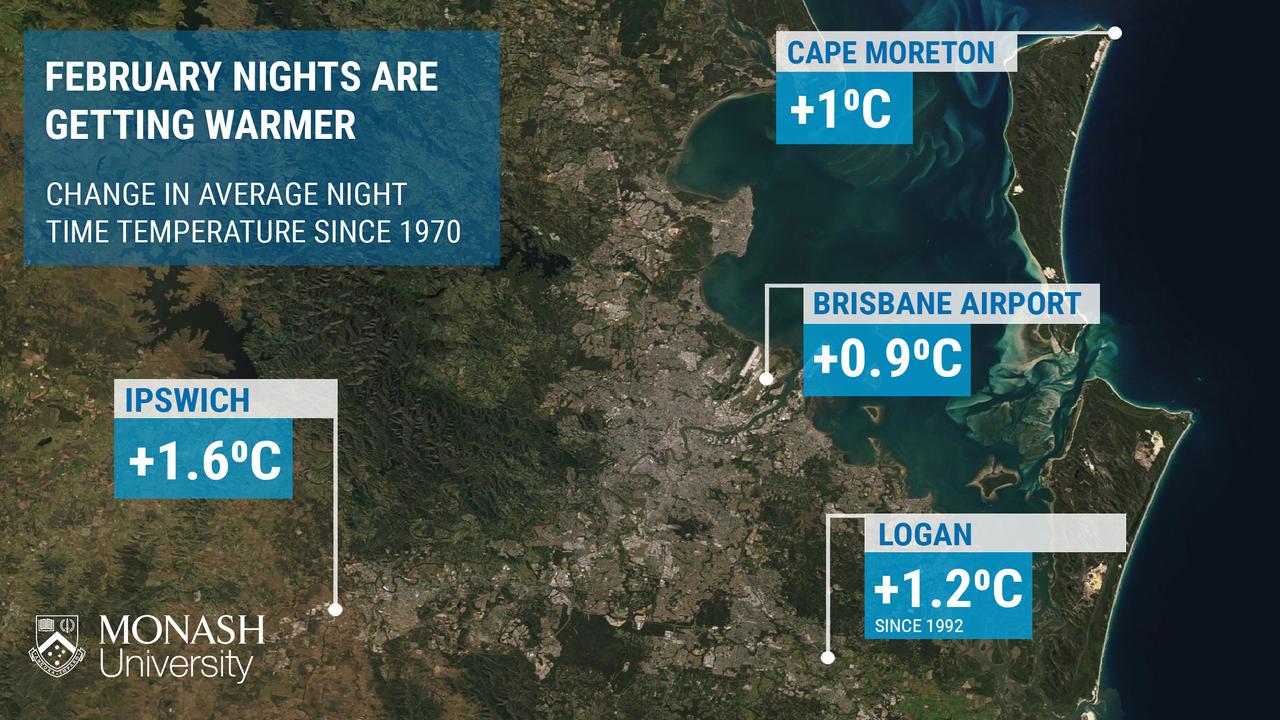Overnight temperatures are increasing across Brisbane, according to weather bureau data
Dr Christa Pudmenzky discusses how Brisbane's overnight climate is changing. Plus, how are night time temperatures affected by the ocean?

More wet weather is expected this weekend - temperatures will remain in the mid-20s, with showers and light winds forecast across Saturday and Sunday.
Across Brisbane, nights are warming up.
In the early 1970s, a typical February night in Springfield was around 19 degrees.
These days, it's more like 20 degrees.
A one degree increase may sound small, but minor shifts in the climate can result in more heatwaves, extreme weather events and increased fire danger.
Did you know?
The Pacific Ocean plays an important role in regulating the temperature of Brisbane's coastline.
Oceans are cooler than land because they are slower to absorb heat from the sun.
This temperature difference between ocean and land produces land-sea breezes.
During summer, a land-sea breeze will cool coastal regions, but inland regions may find the heat of the day lingers overnight.
As a result, coastal areas, like Moreton Bay, don't experience the night time temperature extremes that inland locations, like Ipswich, do.
Voices from your community
Gary Walsh lived in Bongaree for 66 years and noticed similar warming trends along the coast.
"Night temperatures are somewhat warmer," he said.
"Summer days generally seem to be hotter and more frequent.
"It is also drier and this has predictable impacts, the bushland is more prone to fire and is slower to recover after a fire event."
Community voices like Gary's tell us how residents and business owners in Brisbane's north feel about their local climate. If you would like to contribute your voice to our column, you can fill out our 5-minute survey here.
Want more information on how your climate is changing? Check out last week's article here.
Dr Christa Pudmenzky is a climate scientist at the University of Southern Queensland.
This column is part of a collaboration between the Monash Climate Change Communication Research Hub and News Corp to deliver hyperlocal weather and climate information.
Follow the Hub on Twitter to join the conversation.


